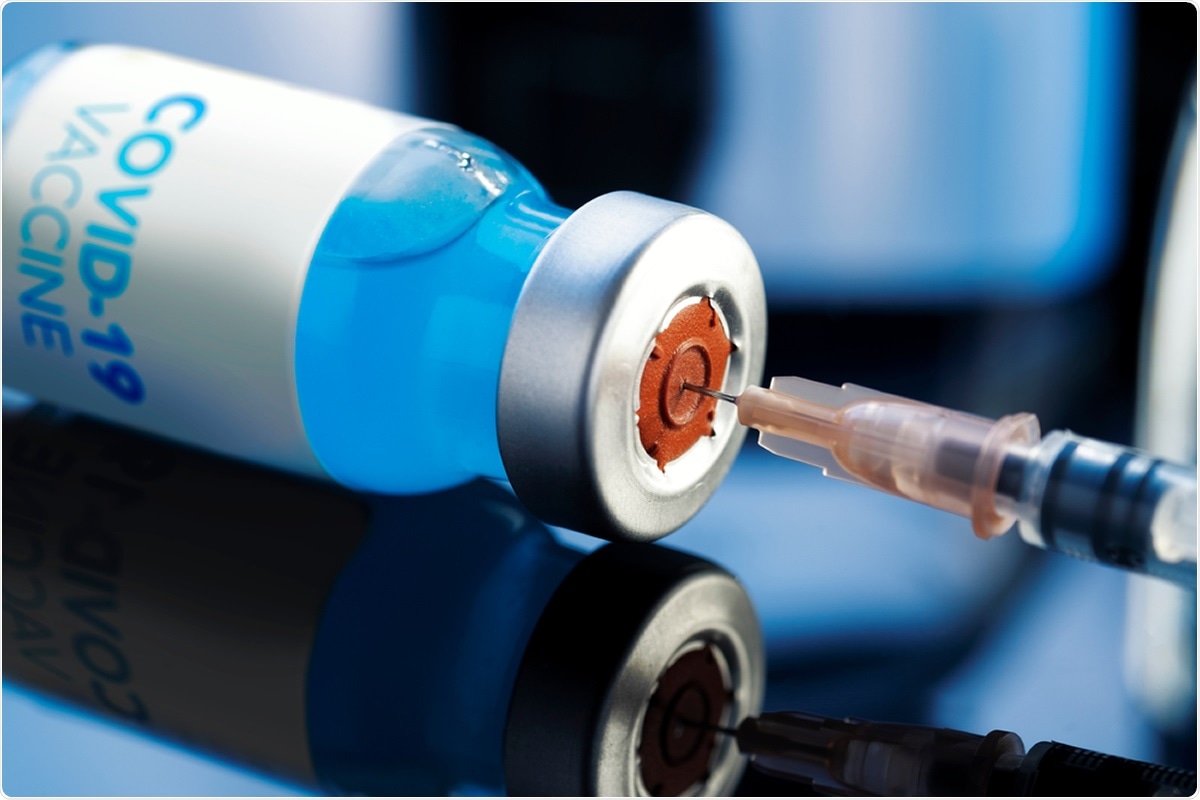As vaccine efforts commence in many countries, prioritizing who receives the vaccine first is in place. Health workers and front-liners will receive the first doses, followed by those at the most significant risk of dying from the coronavirus disease (COVID-19), caused by the severe acute respiratory syndrome coronavirus 2 (SARS-CoV-2).
Now, California state allows individuals with one of ten comorbidities to get their COVID-19 jabs. This comes after obesity being tagged as COVID-19 vaccine eligibility.

Image Credit: Arda Savasciogullari / Shutterstock
Body mass index and obesity
The U.S. Centers for Disease Control and Prevention (CDC) notes that obesity is an underlying health condition defined as a body mass index (BMI) of 30 or higher but less than 40.
For normal range adults, the BMI should be between 18.5 and 24.9, while overweight individuals have a BMI of 25 to 29.9. People with a BMI of more than 30 are considered obese, while those with a BMI of 40 and above are extremely or severely obese.
San Francisco City, meanwhile, expanded its definition for qualifying conditions, which allowed those who are obese by CDC standards to get vaccinated against COVID-19. Hence, the new guideline directs that all Californians with a BMI of 40 and above can get vaccinated, while residents in San Francisco with a BMI of 30 and above are qualified to get the shot.
Vaccine eligibility
Currently, the Department of Public Health in San Francisco notes that people eligible for the vaccine are health care workers, people 65 years and older, emergency service workers, and education and childcare workers. Other eligible individuals include food and agriculture workers, people with certain health conditions or disabilities, homeless people, and those living or working in congregate living settings such as homeless shelters and correctional facilities.
The health conditions include active cancer, chronic kidney disease, Down's syndrome, chronic obstructive pulmonary disease (COPD), pregnancy, sickle cell disease, heart conditions such as heart failure, cardiomyopathies, and coronary artery disease, obesity with a BMI of more than 30, diabetes, and immunosuppression due to bone marrow or organ transplant, use of corticosteroids, human immunodeficiency virus (HIV), and the use of immune weakening medicines.
The Department of Health emphasizes that vaccines are currently in limited supply. Residents may have to wait to get a vaccine even when they are eligible. Further, it reports that the general public may not have access to the vaccine until later in 2021 when more vaccines are available.
For the vaccine, two shots are required for complete protection, which may be a few weeks apart. The state offers online registration for vaccination. Those whose schedules are not available can register to be notified when they become eligible to get the vaccine.
Vaccinating against COVID-19
One way to curb the ongoing pandemic, which has caused over 120 million infections globally, is through vaccination.
Globally, about 2.66 million have died, and more than 68.18 million have recovered.
The United States has the highest number of cases, topping 29.54 million cases and over 536,000 deaths. Brazil and India follow with 11.6 million and 11.4 million cases, respectively.
The other countries with a surging number of cases include Russia, with 4.36 million cases, the United Kingdom, with 4.28 million cases, France, 4.16 million cases, and Italy, with 3.25 million cases.
COVID-19 vaccines teach the immune system to recognize SARS-CoV-2 and prevent infection. It takes a few weeks after the body has full protection against the virus upon getting the shot. This means that within that time frame, the person can still get COVID-19.
In terms of safety, the vaccines are authorized by the U.S. Food and Drug Administration (FDA) after reviewing human trials' results. In the U.S., the approved authorized vaccines are up to 95 percent effective against COVID-19.
To date, 109 million doses have been administered in the U.S. 38.3 million or 11.68% of the population are fully vaccinated. Most people have reported only mild side effects after vaccination.